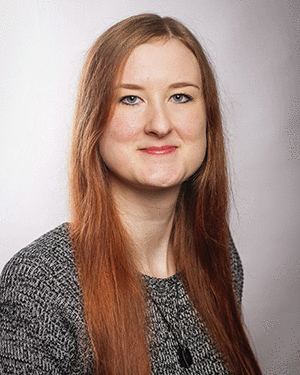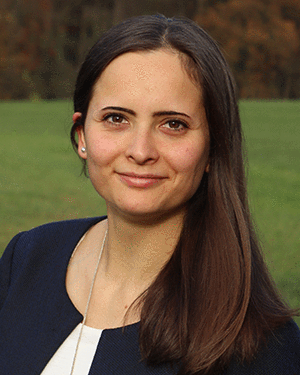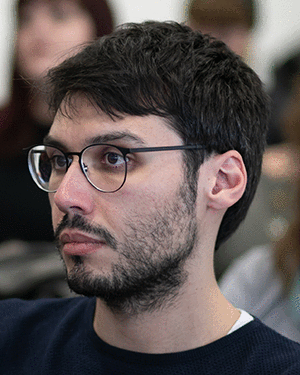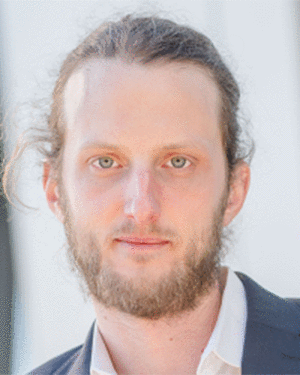Abstract:
The satellite-derived surface urban heat island is often not properly distinguished from the in situ derived canopy-layer urban heat island in the field of remote sensing...Show MoreMetadata
Abstract:
The satellite-derived surface urban heat island is often not properly distinguished from the in situ derived canopy-layer urban heat island in the field of remote sensing of urban climates. Yet, some studies have investigated their differences, focusing mainly on single urban agglomerations and limited periods. Moreover, a comparison of different urban heat island studies is impeded due to nonstandardized urban classifications. This study analyzes the impact of different definitions of urban and rural on the urban heat island intensity and investigates the differences between the surface and the canopy-layer urban heat island intensities for a long time period and a large number of urban agglomerations compared with most other urban heat island studies. We compare the urban heat island intensities for 91 European urban agglomerations using moderate-resolution imaging spectroradiometer land surface temperature and Netatmo-derived citizen weather station air temperature for the summers (June–August) of 2019–2021. The results show the following: First, the urban heat island types and their differences are significantly impacted by the underlying urban and rural classification. The findings underline that the studies based on different classification schemes should not be compared without considering the methodology. Second, the surface urban heat island is an all-day phenomenon, while the canopy-layer urban heat island is a nocturnal phenomenon and there is a substantial difference between both types during the diurnal cycle. Thus, land surface temperature should not be used as a proxy for the canopy-layer urban heat island. Third, the urban heat island does not indicate absolute temperatures. Intraseasonal changes in urban heat island intensities and urban temperatures can even have a different temporal evolution.
Published in: IEEE Journal of Selected Topics in Applied Earth Observations and Remote Sensing ( Volume: 17)

Bochum Urban Climate Lab, Ruhr University Bochum, Bochum, Germany
Leonie Krelaus received the M.Sc. degree in geography with a specialization in geomatics from the Department of Geography, Ruhr University Bochum, Bochum, Germany, in 2022.
Her major fields of study are remote sensing in the field of urban climatology and climate adaptation. From 2022 to 2024, she was a Remote Sensing Expert with Regionalverband Ruhr to integrate remote sensing methods into regional and city planning. Sinc...Show More
Leonie Krelaus received the M.Sc. degree in geography with a specialization in geomatics from the Department of Geography, Ruhr University Bochum, Bochum, Germany, in 2022.
Her major fields of study are remote sensing in the field of urban climatology and climate adaptation. From 2022 to 2024, she was a Remote Sensing Expert with Regionalverband Ruhr to integrate remote sensing methods into regional and city planning. Sinc...View more

Bochum Urban Climate Lab, Ruhr University Bochum, Bochum, Germany
Joy Apfel received the M.Sc. degree in geography with a specialization in geomatics from the Department of Geography, Ruhr University Bochum, Bochum, Germany, in 2022.
Her major interests include remote sensing in the field of urban climatology and geographic information systems (GIS). She is currently working in the field of GIS as a GIS-Specialist, assisting the maintenance of GIS systems, conducting spatial analyses and...Show More
Joy Apfel received the M.Sc. degree in geography with a specialization in geomatics from the Department of Geography, Ruhr University Bochum, Bochum, Germany, in 2022.
Her major interests include remote sensing in the field of urban climatology and geographic information systems (GIS). She is currently working in the field of GIS as a GIS-Specialist, assisting the maintenance of GIS systems, conducting spatial analyses and...View more

Bochum Urban Climate Lab, Ruhr University Bochum, Bochum, Germany
Panagiotis Sismanidis received the Engineering Diploma in rural and surveying engineering and the Ph.D. degree in thermal remote sensing from National Technical University, Athens, Greece, in 2012 and 2018, respectively.
He is a Senior Scientist with the Institute of Geography, Ruhr University Bochum, Bochum, Germany, where he works on thermal remote sensing and urban climatology. He is also a Research Associate with the I...Show More
Panagiotis Sismanidis received the Engineering Diploma in rural and surveying engineering and the Ph.D. degree in thermal remote sensing from National Technical University, Athens, Greece, in 2012 and 2018, respectively.
He is a Senior Scientist with the Institute of Geography, Ruhr University Bochum, Bochum, Germany, where he works on thermal remote sensing and urban climatology. He is also a Research Associate with the I...View more

Bochum Urban Climate Lab, Ruhr University Bochum, Bochum, Germany
Benjamin Bechtel received the Ph.D. degree in urban climatology from the Department of Geography, University of Hamburg, Hamburg, Germany, in 2012.
He was a Research Associate with the Cluster of Excellence CliSAP, University of Hamburg. He currently holds a professorship in Urban Climatology at the Department of Geography, Ruhr University Bochum, Germany. His research interests include crowd sourcing and urban remote sens...Show More
Benjamin Bechtel received the Ph.D. degree in urban climatology from the Department of Geography, University of Hamburg, Hamburg, Germany, in 2012.
He was a Research Associate with the Cluster of Excellence CliSAP, University of Hamburg. He currently holds a professorship in Urban Climatology at the Department of Geography, Ruhr University Bochum, Germany. His research interests include crowd sourcing and urban remote sens...View more

Bochum Urban Climate Lab, Ruhr University Bochum, Bochum, Germany
Leonie Krelaus received the M.Sc. degree in geography with a specialization in geomatics from the Department of Geography, Ruhr University Bochum, Bochum, Germany, in 2022.
Her major fields of study are remote sensing in the field of urban climatology and climate adaptation. From 2022 to 2024, she was a Remote Sensing Expert with Regionalverband Ruhr to integrate remote sensing methods into regional and city planning. Since 2024, she has been a part of the ERDF-Project Grün4KRITIS with the Department of Climate Adaptation, Regionalverband Ruhr, Essen, Germany, doing research on how green infrastructure can be used to prevent critical infrastructure from the negative effects of climate change. Her main research interest includes the integration of geoinformation methodology in practical planning in the field of climate adaptation.
Leonie Krelaus received the M.Sc. degree in geography with a specialization in geomatics from the Department of Geography, Ruhr University Bochum, Bochum, Germany, in 2022.
Her major fields of study are remote sensing in the field of urban climatology and climate adaptation. From 2022 to 2024, she was a Remote Sensing Expert with Regionalverband Ruhr to integrate remote sensing methods into regional and city planning. Since 2024, she has been a part of the ERDF-Project Grün4KRITIS with the Department of Climate Adaptation, Regionalverband Ruhr, Essen, Germany, doing research on how green infrastructure can be used to prevent critical infrastructure from the negative effects of climate change. Her main research interest includes the integration of geoinformation methodology in practical planning in the field of climate adaptation.View more

Bochum Urban Climate Lab, Ruhr University Bochum, Bochum, Germany
Joy Apfel received the M.Sc. degree in geography with a specialization in geomatics from the Department of Geography, Ruhr University Bochum, Bochum, Germany, in 2022.
Her major interests include remote sensing in the field of urban climatology and geographic information systems (GIS). She is currently working in the field of GIS as a GIS-Specialist, assisting the maintenance of GIS systems, conducting spatial analyses and creating cartographic products.
Joy Apfel received the M.Sc. degree in geography with a specialization in geomatics from the Department of Geography, Ruhr University Bochum, Bochum, Germany, in 2022.
Her major interests include remote sensing in the field of urban climatology and geographic information systems (GIS). She is currently working in the field of GIS as a GIS-Specialist, assisting the maintenance of GIS systems, conducting spatial analyses and creating cartographic products.View more

Bochum Urban Climate Lab, Ruhr University Bochum, Bochum, Germany
Panagiotis Sismanidis received the Engineering Diploma in rural and surveying engineering and the Ph.D. degree in thermal remote sensing from National Technical University, Athens, Greece, in 2012 and 2018, respectively.
He is a Senior Scientist with the Institute of Geography, Ruhr University Bochum, Bochum, Germany, where he works on thermal remote sensing and urban climatology. He is also a Research Associate with the Institute for Astronomy, Astrophysics, Space Applications and Remote Sensing, National Observatory of Athens, Athens, Greece, focusing on thermal remote sensing and heat-health applications. He has participated in several research and civil protection projects funded by the European Commission and the Greek state. He has authored or coauthored his research in more than 20 journal articles in peer-reviewed scientific journals focusing on remote sensing and in one book chapter.
Dr. Sismanidis was a recipient of two grants from the A.G. Leventis Foundation in 2016 and 2017, one grant from the German Academic Exchange Service in 2018, and one award from the European Meteorological Society in 2016, for his Ph.D. thesis entitled “Applying Computational Methods for Processing Thermal Satellite Images of Urban Areas.” He is a reviewer in several remote sensing journals and has guest-edited the “Application of Remote Sensing in Urban Climatology” special issue in remote sensing.
Panagiotis Sismanidis received the Engineering Diploma in rural and surveying engineering and the Ph.D. degree in thermal remote sensing from National Technical University, Athens, Greece, in 2012 and 2018, respectively.
He is a Senior Scientist with the Institute of Geography, Ruhr University Bochum, Bochum, Germany, where he works on thermal remote sensing and urban climatology. He is also a Research Associate with the Institute for Astronomy, Astrophysics, Space Applications and Remote Sensing, National Observatory of Athens, Athens, Greece, focusing on thermal remote sensing and heat-health applications. He has participated in several research and civil protection projects funded by the European Commission and the Greek state. He has authored or coauthored his research in more than 20 journal articles in peer-reviewed scientific journals focusing on remote sensing and in one book chapter.
Dr. Sismanidis was a recipient of two grants from the A.G. Leventis Foundation in 2016 and 2017, one grant from the German Academic Exchange Service in 2018, and one award from the European Meteorological Society in 2016, for his Ph.D. thesis entitled “Applying Computational Methods for Processing Thermal Satellite Images of Urban Areas.” He is a reviewer in several remote sensing journals and has guest-edited the “Application of Remote Sensing in Urban Climatology” special issue in remote sensing.View more

Bochum Urban Climate Lab, Ruhr University Bochum, Bochum, Germany
Benjamin Bechtel received the Ph.D. degree in urban climatology from the Department of Geography, University of Hamburg, Hamburg, Germany, in 2012.
He was a Research Associate with the Cluster of Excellence CliSAP, University of Hamburg. He currently holds a professorship in Urban Climatology at the Department of Geography, Ruhr University Bochum, Germany. His research interests include crowd sourcing and urban remote sensing, in particular, the characterization of urban surfaces and thermal remote sensing for applications in urban climatology.
Prof. Bechtel was a recipient of the 2021 Timothy Oke Award of the International Association for Urban Climate and the 2013 Dissertation Award for Physical Geography in Germany for his Ph.D. thesis on “Remote sensing of urban canopy parameters for enhanced modeling and climate-related classification of urban structures.” He has been serving as a board member of the International Association for Urban Climate since 2017 and its Secretary since September 2022, a Section Editor for PLOS Climate, an Associate Editor for Frontiers in Remote Sensing, a member of several VDI guideline commissions, and a reviewer of WMO, several international journals, and funding agencies.
Benjamin Bechtel received the Ph.D. degree in urban climatology from the Department of Geography, University of Hamburg, Hamburg, Germany, in 2012.
He was a Research Associate with the Cluster of Excellence CliSAP, University of Hamburg. He currently holds a professorship in Urban Climatology at the Department of Geography, Ruhr University Bochum, Germany. His research interests include crowd sourcing and urban remote sensing, in particular, the characterization of urban surfaces and thermal remote sensing for applications in urban climatology.
Prof. Bechtel was a recipient of the 2021 Timothy Oke Award of the International Association for Urban Climate and the 2013 Dissertation Award for Physical Geography in Germany for his Ph.D. thesis on “Remote sensing of urban canopy parameters for enhanced modeling and climate-related classification of urban structures.” He has been serving as a board member of the International Association for Urban Climate since 2017 and its Secretary since September 2022, a Section Editor for PLOS Climate, an Associate Editor for Frontiers in Remote Sensing, a member of several VDI guideline commissions, and a reviewer of WMO, several international journals, and funding agencies.View more

